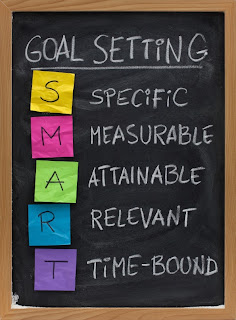By Brian Dumont
Welcome to 2014. It’s
a brand new year with a clean slate just waiting for you make some
resolutions. And while technically
anyone can resolve to change anytime of the year, for some reason it seems a
little easier to make a fresh start when the calendar page turns. Smile FM DJ’s are no different. Here are some of the resolutions they have
pledged for 2014:
My new year’s resolution is to continue my journey to health and become my
healthiest self ever in terms of physical fitness and healthy eating. I’m finally
learning to take care of my body before it falls apart. – Jenn
I want to start a weekly blog this year with a working title
of “Music To Live By.” Each entry will be
about a specific song and how it has impacted me on a personal level. – Brian
My Goal is to eat healthier and be more consistently active.
– Amanda
I want to see EVERY relative on all sides of my family who
live in Michigan at least once, which
means treks between Detroit, Lansing,
Kalamazoo, and Traverse
City… and a lot of money in Speedway's
pockets. – Mike
 Okay, mine is weird. You probably know that Notre Dame
football players always touch a sign before they go on the football field. I have this plaque at my house that I often
forget. I've decided in the new year that I'm going to touch it every time I
walk by it, to help me remember it more, and live it out more. – Faron
Okay, mine is weird. You probably know that Notre Dame
football players always touch a sign before they go on the football field. I have this plaque at my house that I often
forget. I've decided in the new year that I'm going to touch it every time I
walk by it, to help me remember it more, and live it out more. – Faron
Making resolutions and setting goals for positive change is
a good thing, however there are a few tips that might help you achieve your
goals more effectively. Several
leadership experts offered their opinion in this area. One theory some use for goal setting is the SMART
method. SMART is an acronym that stands
for specific, measurable, attainable, relevant
and time-bound. If a goal is set and it meets all of these
criteria there’s a higher chance the goal will be met with success.
Specific – It’s important to be specific when setting a
goal. If you’re not specific, how will
you know when you’ve achieved it? How
will you know how to achieve it? For example, you can say you want to lose
weight this year and leave it at that, but then what are you going to do? Where do you start? How do you know when you’ve finished? But if instead you say you want to lose 30
lbs. in the next 3 months and you’re going to do it by eating smaller portions,
eliminating sugar from your diet, drinking at least 8 glasses of water each day
and exercising at least 5 times week for 30 minutes, then you have something to
work with and you can tell whether or not you’re actually meeting your goal.
Measurable – If your goal is specific then it should be easy
to measure. Continuing with our weight
loss example, if you know your starting weight than you can easily measure your
progress. Just step on the scale and
you’ll be able to tell right away if you’re headed in the right direction. However, if your goal lacks definition how
will you know if it has been met? If you
were to say you want to eat healthier, what does that actually mean? Is “healthier” based on calories? Ingredients?
Portion size? If you don’t
specify, you can’t measure.
Attainable – You’re goal has to be within reason otherwise
it’s not worth setting in the first place.
For example, if your goal is to loose 100 lbs. in one month, that would
be unrealistic, if not impossible (and if it were possible it probably wouldn’t
be healthy). An attainable goal might
stretch you a bit, but not to the extreme that it will likely result in
failure.
Relevant – Your goal should also pertain to your situation. You can set a goal of weight loss, but if
you’re already at or under the ideal body weight for your height and age, then doesn’t
make sense to shed any additional pounds.
Time-Bound – It’s helpful to give your goal a deadline,
again so you’ll know if you’ve accomplished what you set out to do. If the goal is indefinite and ongoing, then
it’s more difficult to measure your progress.
You can say your goal is to loose 30 lbs. but if you don’t specify by
when, it could go on and on forever and you may never get around to
accomplishing your goal.
One additional consideration when using this theory of goal
setting is to understand it will hold you accountable and there is a risk that
you won’t meet your goals. If this
happens, it’s okay. Part of the process
is evaluating the original goal and setting a new goal if necessary. If you don’t loose 30 lbs. in 3 months, maybe
you need to change your approach. Maybe
you need to exercise more or change your diet or seek assistance from a
professional. The point is, don’t give
up. The fact that you’re setting goals
in the first place proves you’re on the pathway to success.
Enjoy this article and many others on your tablet or smart phone with Smile FM's I Believe Digital Magazine. Download it today!






No comments:
Post a Comment